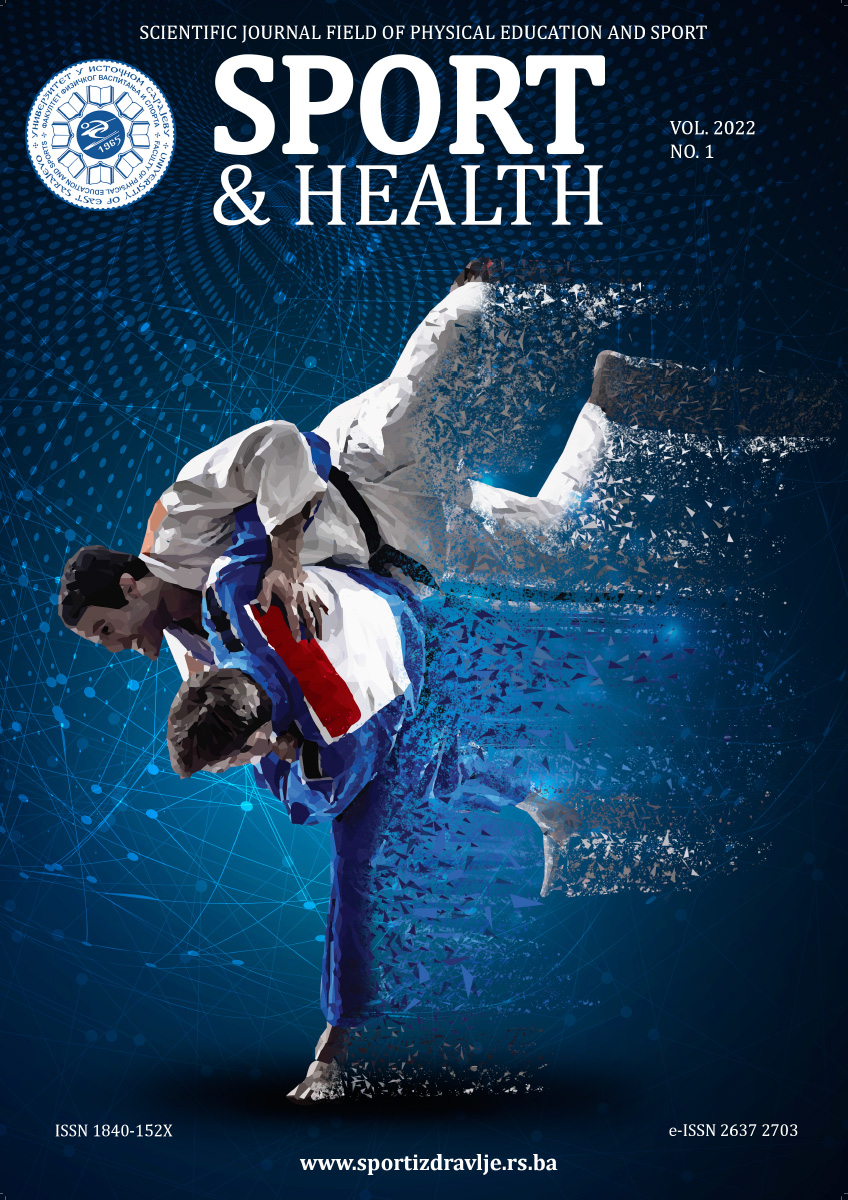EFFECTS OF TRAINING VOLUME IN FINAL RACE TIME AND NEUROMUSCULAR FUNCTION IN ULTRATRAIL RUNNERS
DOI:
https://doi.org/10.7251/SIZ2201143LAbstract
The increasing status of ultratrail races due to the growth in number of races and participants in this kind of events has caught the attention and interest of the scientific community. The present study was carried out in an ultra-trail race (108km distance and 5800m of accumulated slope). The participants were divided into amateur level competitors (n=10; 43.30±4.52 years) or high-level competitors (n=10; 41.40±6.19 years). Neuromuscular response (squat jump, countermovement jump and Abalakov jump) was evaluated before and after the race. A questionary was passed to all participants before the race to determine the experience, the basal parameters and the training volume. The aim of this study is to a) determine the influence of the training volume expressed in hours per week (HS) and elevation gain (D) in the final race time; b) determine the influence of the training volume in the lower body strength loss after an ultratrail race. We establish the hypothesis that those runners who present a lower training volume spend a longer time in finishing the race and that they have a greater loss of lower body strength. Final race time and lower body strength loss were both minor in high level group. Although no significant results (p<0.05) were found out.

